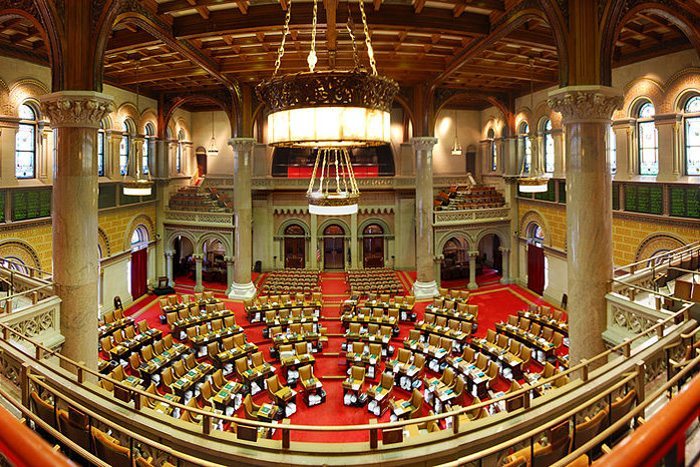New York Lawmakers Urge Passage of Pregnancy Non-Discrimination Bill
Sponsored by Assembly member Aileen Gunther (D-Sullivan County), A 1264 would require employers to make "reasonable accommodations" for employees who are pregnant.

New York lawmakers are calling on the state legislature to pass a bill that would create employment protections for pregnant women. During a press conference, a bipartisan group of state lawmakers called for the passage of a bill that is a stand-alone version of one of the ten planks of the Women’s Equality Act.
Sponsored by Assembly member Aileen Gunther (D-Sullivan County), A 1264 would require employers to make “reasonable accommodations” for employees who are pregnant. These accommodations would include more frequent breaks, job restructuring, and modified work schedules. Additionally, any pregnancy-related condition would be classified as a “temporary disability” according to the definitions and regulations set by the state Division of Human Rights.
Sonia Ossorio, president of the National Organization for Women in New York City, told Rewire that the NOW-NYC Service Fund, a charitable partner organization that provides a “one-stop shop” for referrals to services across the city, receives a significant number of calls from women experiencing discrimination in the workplace.
“We get an alarming number of calls that relate to pregnancy discrimination,” said Ossorio. “We see women in our legal clinics who have been fired or who have had their pregnancies put at risk because their employers would not provide simple accommodations on the job.”
“This is about making clear that pregnant women are entitled to equal treatment in the workplace,” Dina Bakst, co-founder and co-president of A Better Balance, told Rewire. The group promotes legislation and policies that benefit working families.
“When women miscarry because their employers refuse to grant them workplace adjustments, or when women fear of getting pregnant because they know their employer won’t accommodate them—those are reproductive justice issues,” said Bakst.
Three-quarters of women entering the workforce will become pregnant at least once while employed, and those who lack accommodations are often forced to continue working under unhealthy conditions, risking their health and the health of their pregnancies.
Bakst says that with the state legislative session ending soon, the women of New York need the protections provided under the legislation now. “We can’t afford to wait,” said Bakst. “I hope that our legislatures will act swiftly and make this law a reality.”

